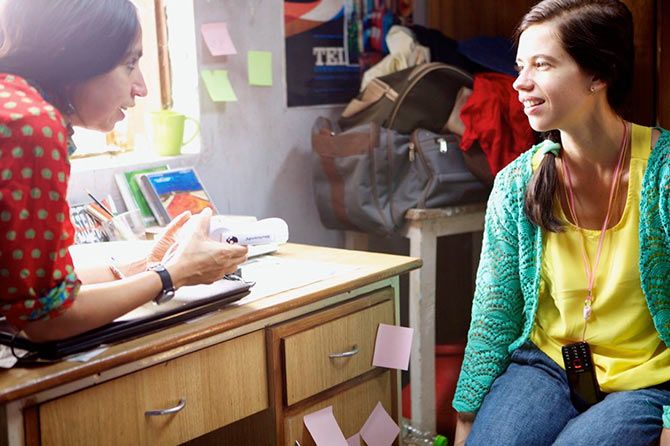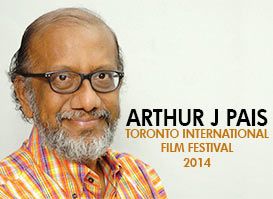.jpg?w=670&h=900) 'This has never happened. And not to mention the bisexual angle as well. You hope that it'll speak to people because after a while you forget about the disability and you look at the person and that's the point of the film.'
'This has never happened. And not to mention the bisexual angle as well. You hope that it'll speak to people because after a while you forget about the disability and you look at the person and that's the point of the film.'
Not long ago, filmmaker Shonali Bose and her cousin Malini Chib, who has cerebral palsy, were having a drink in a London pub.
Malini was approaching her 40th birthday and Shonali asked her cousin how she would celebrate.
"Her speech is usually garbled," Bose said, "and it is difficult to understand. But when she is excited, it often becomes clearer. And that day, she spoke clearly and loudly for all the pub to hear, 'I just want to have sex by the time I am 40'."
Bose, 41, says she had never thought of a celebral palsy person having sex, and went on to make a heartfelt coming-of-age story, Margarita, with a Straw that celebrates different bonds. One of those bonds is between a mother (Revathy) and daughter (Kalki Koechlin, left, in the photograph), who suffers from the condition.
"I began to think of what is normal and what isn't," Bose says. "I also began to think how some of us are confused about our sexual orientation."
Margarita -- which had its world premiere at the Toronto International Film Festival -- follows Bose's first film, the politically-charged Amu set against the Sikh massacres in November 1984. Margarita won the best prize for an Asian film at TIFF on Sunday; over 30 films from China, Japan, Iran, Turkey and the Priyanka Chopra starrer Mary Kom were competing for the honour.
This is Kalki's second film at TIFF, following the sexually-loaded That Girl With Yellow Boots.
'Kalki Koechlin, a member of India's new wave of actors and filmmakers who defy Bollywood conventions, stars as an independent and sexually curious student,' wrote the Toronto Star newspaper about Margarita.

Koechlin, 30, readily admitted her new film is 'certainly pushing boundaries.'
 She told the Toronto Star, 'Nobody has made a film on disability and sexuality in India. This has never happened. It is really something. And not to mention the bisexual angle as well. It is new. You hope that it'll speak to people because what I loved about the script was that after a while you forget about the disability and you look at the person and that's the point of the film.'
She told the Toronto Star, 'Nobody has made a film on disability and sexuality in India. This has never happened. It is really something. And not to mention the bisexual angle as well. It is new. You hope that it'll speak to people because what I loved about the script was that after a while you forget about the disability and you look at the person and that's the point of the film.'
Kalki is braced for any hostile reaction in India, but she feels the film's ultimate theme of finding one's voice and striking an understanding with one's parents will prevail.
She added that she was daunted by the prospects of playing a woman with cerebral palsy and had asked the director to give her time to prepare for the role.
Malini Chib, Bose's cousin, welcomed Kalki and helped her play a disabled woman.
"Malini just welcomed me with open arms," Kalki said at TIFF. "I followed her around everywhere, I lived with her, we went out drinking together, we watched movies together, we did everything together. I really got to see the world of somebody with CP in real detail. And that's a privilege, a person's private space."











 © 2025
© 2025